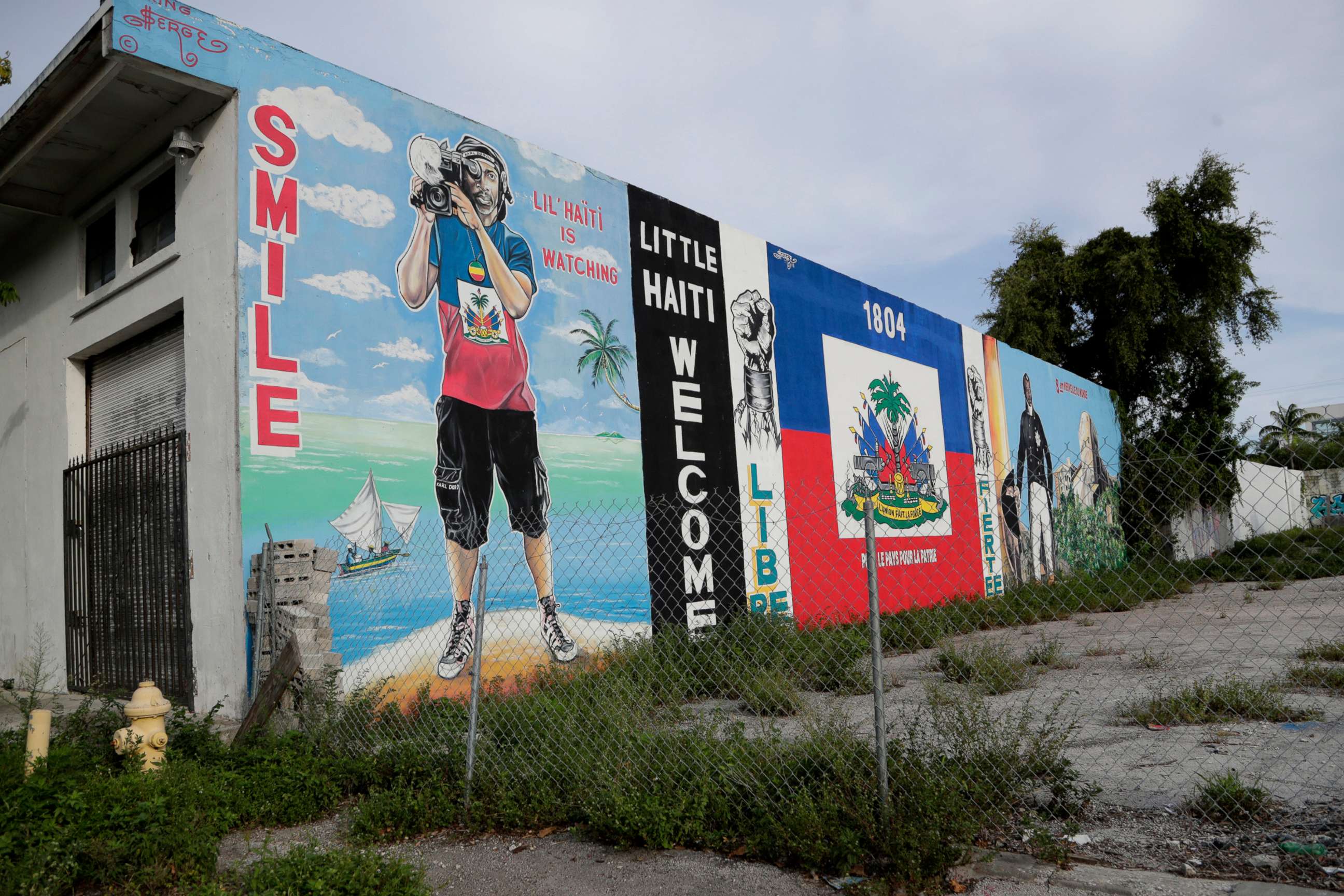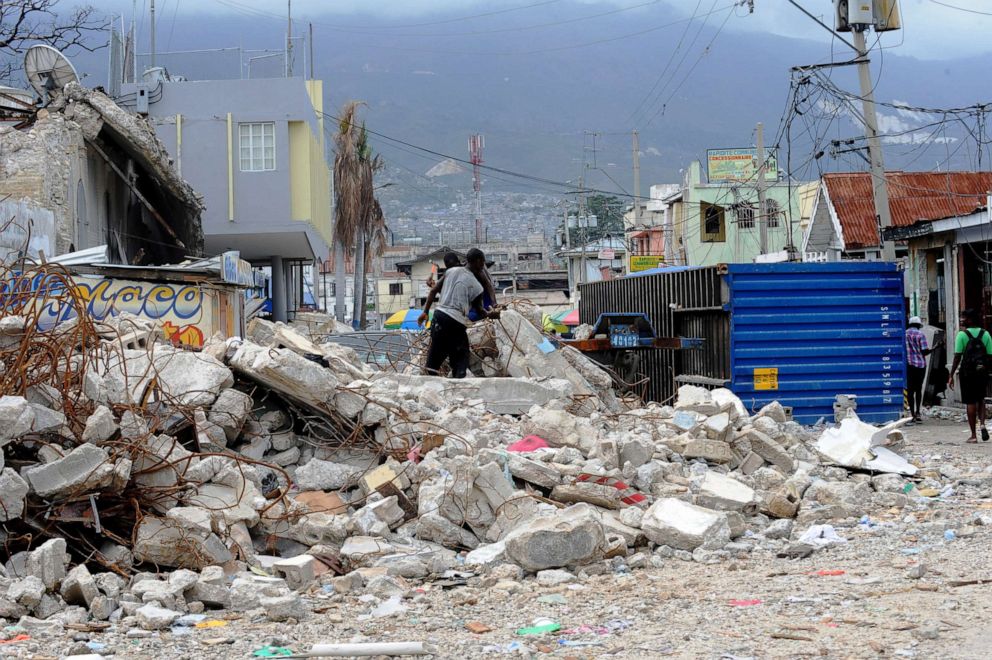Disillusioned Haitian American voters not sure about Trump
"My heart can no longer tell me to support him," one voter said.
For Bernard Sansaricq, voting for Donald Trump in the 2016 presidential election was a clear choice.
The Haitian-born Republican activist was president of the Haitian Senate in 1994. Officially obtaining U.S. citizenship in 2006, Sansaricq was dedicated to establishing democracy in his native country. He said he was hopeful in 2016 when Trump, as a Republican nominee, visited Miami’s Little Haiti. Trump claimed then that he would be their “greatest champion” and hold former Secretary of State Hillary Clinton accountable for what he saw as her failures in the aftermath of a deadly earthquake impacting at least 3 million people in the island nation.
Sansaricq had taken Trump at his word when the promise was made, but now he feels that it has fallen short.
“My understanding was that Trump would be a better man; he would do something for Haiti,” he told ABC News. "We all put our chances on Trump. But my heart can no longer tell me to support him. He has done absolutely nothing for Haiti,” he says. “I might just sit this election out.”

Fort Lauderdale Vice Mayor Samson Borgelin echoed those worries. He said Haitian American support of President Trump in South Florida is spotty when it comes to the upcoming 2020 election. Borgelin said Trump could even be at risk of losing these voters due to a growing divide within the minority group.
“In Palm Beach County, they [Haitians] are one of the largest ethnic minorities in the area. We want to make sure they have equal representation; we want to increase our voter base, and Haitian Americans are a strong, growing and influential part of the larger Palm Beach County community," said Michael Barnett, chairman of the Republican Party of the county.
A University of Florida study by Daniel Smith, chairman of the political science department, showed out of the 50,000 Haitian Americans who cast ballots in South Florida in 2016, the majority of that group's votes actually went to Clinton. In select Palm Beach and Broward County precincts, almost 20% went to Trump, according to Smith's research.
Barnett said the percentage of support from black voters for Trump in 2016 was higher than what 2012 presidential Republican nominee Mitt Romney was able to pull in from the state. Trump received at least 8% of the black vote in 2016, according to an NBC News exit poll. In 2012, Romney only received 4%, according to the Washington Post.
“Twenty percent seems like a small number, but it's really strong,” he said. "Donald Trump worked really hard to make his presence known in the Haitian and black community.”
Borgelin told ABC News that many Haitian Americans in his community feel alienated by Trump's immigration stance and even regret voting for him. The main concern centered on the end to the minority group's top priority: Temporary Protected Status, a program that offers temporary relief to people within the United States when conditions in their home country prevent them from returning safely.
Temporary Protected Status "is a big concern here,” Borgelin said. “People are worried about their families being divided.”

The program was opened up to Haitians in 2010 under the Obama administration following a massive earthquake. The Trump administration has indicated that the conditions in the country had improved, and the program could have been terminated on July 22, ending the protection of at least 58,600 Haitians. However, the Department of Homeland Security, extended it until Jan. 2, 2020.
Maria Landry, a local activist, said those under Temporary Protected Status are more anxious about what to do when protections run out than anything else. Their angst is only exacerbated by the president's comments last year during a bipartisan meeting in the Oval Office. Trump asked the group why anyone would want people from Haiti, Africa or other "s---hole countries" coming into the United States, according to multiple sources either briefed on or familiar with the discussion.
“I don’t think he’s going to have the same support as he did before," Borgelin said.
The earthquake in 2010, which left over 310,000 Haitians dead, prompted the creation of the Clinton-Bush Haiti Fund, a nonprofit organization that sought to reconstruct and improve economic conditions within the island.

In combination with non-governmental organizations, U.S. tax dollars and charities around the world, the United Nations reported over $13 billion dollars were raised for relief efforts. Yet, for many Haitian Americans such as activist Èzili Dantò, the allocation of this fund to the poverty ridden country still remains to be seen.
"He [Trump] was the lesser evil. We didn’t want a third Obama or a third Clinton," Dantò said.
As founder of the FreeHaiti Movement, Dantò welcomed Trump’s presidency and hoped to use it to tell a new story about Haiti, one shifted away from the “disaster narrative."
But she now feels that “just like he continued [Temporary Protected Status] elimination, Trump continued the imperialistic and geopolitical policies of the United States in Haiti.”




